I have a hard time remembering the books I have read without also remembering who I have read them with or where. Increasingly, since so much of my reading is done out loud to my children, it seems natural to me that all reading should be shared reading of one sort or another. Sifting through text messages, chats, emails, and the letters and envelopes scattered around my office, I have pieced together a calendar of the books I have read and the people who made them matter.




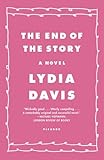

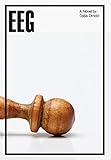

 January, February: The Collected Stories of Diane Williams, “stories that show how the momentary convergence of yearning and surrender can make time hang still,” I shout first at Stephanie, then at the bartender serving us, before putting the thought in an essay on Williams; Helen Garner’s The Spare Room, Monkey Grip, and The Children’s Bach (“one of the best novels of the twentieth century,” Len writes to me after reading a draft of my essay on Garner)—novels built out of beautifully Brechtian tableaux. My calendar reminds me that most of February was spent at festivals and talks, reading on freezing trains. On a train to Harrogate: Dasa Drndić’s Doppelganger, which features an old lady giving an old man a hand job beat out to a Nazi alphabet primer. On a train to Cambridge: Lydia Davis’s The End of the Story, the best anatomization of how one person can colonize another’s thought after a break up. During a long weekend in New York: Drndić’s Belladonna, EEG, and Trieste for an essay about Drndić’s novels of unsuccessful self-annihilation. On a flight to Glasgow, Brigid Brophy’s Flesh, about an inexperienced, neurotic, young man seduced by a wry, charismatic, older woman.
January, February: The Collected Stories of Diane Williams, “stories that show how the momentary convergence of yearning and surrender can make time hang still,” I shout first at Stephanie, then at the bartender serving us, before putting the thought in an essay on Williams; Helen Garner’s The Spare Room, Monkey Grip, and The Children’s Bach (“one of the best novels of the twentieth century,” Len writes to me after reading a draft of my essay on Garner)—novels built out of beautifully Brechtian tableaux. My calendar reminds me that most of February was spent at festivals and talks, reading on freezing trains. On a train to Harrogate: Dasa Drndić’s Doppelganger, which features an old lady giving an old man a hand job beat out to a Nazi alphabet primer. On a train to Cambridge: Lydia Davis’s The End of the Story, the best anatomization of how one person can colonize another’s thought after a break up. During a long weekend in New York: Drndić’s Belladonna, EEG, and Trieste for an essay about Drndić’s novels of unsuccessful self-annihilation. On a flight to Glasgow, Brigid Brophy’s Flesh, about an inexperienced, neurotic, young man seduced by a wry, charismatic, older woman.

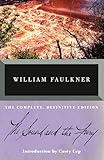
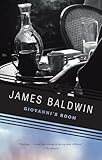


 March, April: Nightwood, The Sound and the Fury, Lolita, Giovanni’s Room, Housekeeping, Beloved, novels I re-read during the term with my students. (“Is modernism inherently depressing or do you just like depressing modernist novels?” one asks.); Siri Hustvedt’s fine and predictable Memories of the Future for a review. Obsessed with telescopes and other instruments of sight after scientists release the first image of a black hole, I read Margaret Cavendish’s mind-blowing The Blazing World and Poems and Fancies and Danielle Dutton’s enchanting novelization of Cavendish’s life, Margaret the First. I chase down some seventeenth century scholars, all of them named Katharine (why?), so I can learn how old telescopes work.
March, April: Nightwood, The Sound and the Fury, Lolita, Giovanni’s Room, Housekeeping, Beloved, novels I re-read during the term with my students. (“Is modernism inherently depressing or do you just like depressing modernist novels?” one asks.); Siri Hustvedt’s fine and predictable Memories of the Future for a review. Obsessed with telescopes and other instruments of sight after scientists release the first image of a black hole, I read Margaret Cavendish’s mind-blowing The Blazing World and Poems and Fancies and Danielle Dutton’s enchanting novelization of Cavendish’s life, Margaret the First. I chase down some seventeenth century scholars, all of them named Katharine (why?), so I can learn how old telescopes work.
In mid-April, my friend Sarah comes to visit Oxford. A sense of civility and calm descends on my loud, disordered home. She airs out the cottage, opens a bottle of wine, roasts a chicken, and makes a salad, the likes of which my children have never seen before because I feed them only frozen peas, still frozen. We read together. The kids—The Jolly Postman, Each Peach Pear Plum, Julián Is a Mermaid, Tiny T-Rex and the Impossible Hug. She—Sally Rooney’s Normal People, interrupting her reading every ten minutes to groan at me. (I prefer Conversations with Friends.) Me—The Last Samurai, the pages of which have stiffened into little waves after I laughed so hard at DeWitt’s mad, philological genius that I dropped the book into the tub. To make Sarah happy again, I take her to Blackwell’s and make her buy her own copy of The Last Samurai, which has a nicer cover than mine because it’s the U.K. edition. She reads it in a single sitting the next day, draped over the couch in my office, and complains that Jonathan Safran Foer ripped off Helen DeWitt when he wrote Extremely Loud and Incredibly Close. “Only his version was squishier,” she says.
At the very end of April, someone—I wish I could remember who, but I can’t—recommends Olive Moore’s Spleen, a forgotten modernist novel, painterly and queer, about the fearful eroticism of maternity. In Paris for work, I do an interview with British Vogue about “serious erotic fiction,” trying hard to convince the wide-eyed editor that Gertrude Stein’s Tender Buttons is full of practical sex tips. On the flight to Guernsey for a festival, I read the first half of my friend Rachel’s forthcoming book On Compromise: Essays on Art and Democracy, which is bracing and sensitive and funny.
May: a month consumed by gradually escalating illnesses. A sniffle, a cold, a sinus infection, bronchitis. I am bravely preparing to die of tuberculosis in a garret somewhere when I receive a copy of Guy de Maupassant’s Like Death from Nicholas at the New York Review of Books. How does he know nothing heals me like a novel about French aristocrats and artists behaving badly? Convalescing, I blow through Iris Murdoch’s A Severed Head at the urging of Sarah, who is convinced that my life is always one punch in the face away from a Murdoch novel. The recommendation is seconded by our friend Gloria. “When I gave this book to my roommate when we were twenty-two, she said she felt like bread that just discovered butter,” Gloria writes. “I have never forgotten that.” On the train to Cardiff for a talk, I read Adam Sach’s debut novel The Organs of Sense, which is extremely funny on seventeenth-century telescopes, blind astronomers, and the temporary luminosity of love.

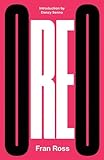
 June: Fleur Jaeggy’s novella Sweet Days of Discipline (cold, gleaming), then to Ingeborg Bachmann’s Malina (eddying, frantic), poolside at Cliveden House where I burn badly, convinced that the English sun is too puny to warrant sun screen; Fran Ross’s Oreo after swimming the Thames, flanked by unarousable cows; Leah Price’s What We Talk About When We Talk About Books, one of only three non-fiction books I will read this year and the inspiration for the bookish tattoo I get at the end of the month.
June: Fleur Jaeggy’s novella Sweet Days of Discipline (cold, gleaming), then to Ingeborg Bachmann’s Malina (eddying, frantic), poolside at Cliveden House where I burn badly, convinced that the English sun is too puny to warrant sun screen; Fran Ross’s Oreo after swimming the Thames, flanked by unarousable cows; Leah Price’s What We Talk About When We Talk About Books, one of only three non-fiction books I will read this year and the inspiration for the bookish tattoo I get at the end of the month.
July: Yiyun Li’s Where Reasons End, before a flight to Turkey to drop the kids off with my mother at her summer house on the coast. On the flight there, I read them the animal books they love: Just So Stories, Where the Wild Things Are, The Elephant and the Bad Baby. My last night at my mother’s, I stay up too late reading Kafka’s Letters to Milena, which I find on the shelf of the guest bedroom. I am mesmerized by how Frank—Milena calls him Frank; I will too—burdens this woman with his torment, yet how real and irreducible that torment seems. I am sad that Milena’s side of the correspondence has not survived. I like her voice as I encounter it in the appendix to the book, in a letter to Max Brod. It’s a voice that seeks reality and clarity and, glimpsing both, bends toward compassion. There’s an excellent description of how annoying it is to accompany Frank to the post office. I reread Lydia Davis’s short story “Kafka Cooks Dinner” in The Collected Stories of Lydia Davis to hear the echoes of that voice, mined for its comic potential: “I am so filled with despair as the time grows near when she will come and I have not even begun to make a decision about what I will offer her. I am so afraid I will fall back on the Kartoffel Surprise, and it’s no surprise to her anymore. I mustn’t, I mustn’t.” On a flight to New York, I read over a dozen applications for the Whiting Non-Fiction Grant, though the one that I remember best, because it feels fated somehow, is a haunting new translation of Kafka’s diaries by Ross Benjamin.




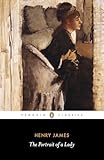 August, back in the U.K., reunited with the kids: Claire Louise-Bennett’s Pond, because I have decided to include a chapter in this book I’m trying to finish writing on the short story and close reading; Ben Lerner’s The Topeka School, because it’s “the new Ben Lerner” and because I used to be a high school debater. In the passenger seat on a drive to Cornwall, I pivot to read backwards to the kids—Ludwig Bemelman’s Madeleine, Ogden Nash’s Custard the Dragon, Julia Donaldson’s Tabby McTat, all of which I have memorized, so I can recite instead of reading—until I start to feel car sick. While they nap, I finish Penelope Mortimer’s The Pumpkin Eater and begin Nicholas Mosley’s Accident, recommended by Claire, who describes Mosely as a “bloodless D.H. Lawrence”—lots of shadowy evil, too little golden sex. On the ride home, I write a short, exorcising essay on Natalia Ginzburg’s The Dry Heart, a grim, anti-Romantic novella about a woman who murders her cheating husband. The week after in Paris, everyone gets a 24-hour stomach bug, only no one gets it in the same 24 hours. The trip becomes a relay race of illness. The kids are listless, filthy. I read them their favorites: Lost and Found, Up and Down, How to Catch a Star, Stuck, The Incredible Book Eating Boy, all by the magnificent children’s author and illustrator Oliver Jeffers. I read chapter 42 of Henry James’s The Portrait of a Lady on my phone about a dozen times because his sentences stave off nausea.
August, back in the U.K., reunited with the kids: Claire Louise-Bennett’s Pond, because I have decided to include a chapter in this book I’m trying to finish writing on the short story and close reading; Ben Lerner’s The Topeka School, because it’s “the new Ben Lerner” and because I used to be a high school debater. In the passenger seat on a drive to Cornwall, I pivot to read backwards to the kids—Ludwig Bemelman’s Madeleine, Ogden Nash’s Custard the Dragon, Julia Donaldson’s Tabby McTat, all of which I have memorized, so I can recite instead of reading—until I start to feel car sick. While they nap, I finish Penelope Mortimer’s The Pumpkin Eater and begin Nicholas Mosley’s Accident, recommended by Claire, who describes Mosely as a “bloodless D.H. Lawrence”—lots of shadowy evil, too little golden sex. On the ride home, I write a short, exorcising essay on Natalia Ginzburg’s The Dry Heart, a grim, anti-Romantic novella about a woman who murders her cheating husband. The week after in Paris, everyone gets a 24-hour stomach bug, only no one gets it in the same 24 hours. The trip becomes a relay race of illness. The kids are listless, filthy. I read them their favorites: Lost and Found, Up and Down, How to Catch a Star, Stuck, The Incredible Book Eating Boy, all by the magnificent children’s author and illustrator Oliver Jeffers. I read chapter 42 of Henry James’s The Portrait of a Lady on my phone about a dozen times because his sentences stave off nausea.
September: On a trip to Boston and New York: Deborah Levy’s calm, aphoristic The Cost of Living—Sarah’s copy, a re-read from last December; Fleur Jaeggy’s S.S. Proleterka. Three Lives, and I Am the Brother of XX and Rachel Ingalls’s Mrs. Caliban, all courtesy of Mieke who invites me to raid her bookshelf at New Directions; the proofs for The Ferrante Letters with Kat, Jill, and Sarah, which I read aloud to us around Sarah’s kitchen table because I always read proofs aloud, though it is slow and excruciating. At a conference in South Bend, Nan recommends Susan Choi’s My Education, about a graduate student who sleeps with her literature professor’s wife, a literature professor too but also—shocking and confusing to all involved—a young mother. I read it on the plane home, and find that, like most relationships, the novel is fun and full of possibility in the first half, turns stale and falls apart in the second.
October: Len, who is on a one-man crusade against what he calls the “New Piety” in literary criticism, convinces me to read Philip Roth’s The Professor of Desire. It starts out funny—Roth is trying hard to retool Chekhov’s short story “The Lady with the Dog” as a comic novel—but Roth makes compulsive sexual desire into such a sad, annihilating thing that my laughter runs out quickly. In an afternoon, I read Isabel Waidner’s propulsive We Are Made of Diamond Stuff, a Brexit novel that manages to write about the present without making the present feel dated; in a night, Ingeborg Bachmann and Paul Celan’s Correspondence, which, though not as intense or agonized as Letters to Milena, still crackles with Celan’s despair and Bachmann’s self-possession. On a flight to Stockholm at the end of the month: Niklas Luhmann’s Love: A Sketch, for a talk I’m supposed to give preemptively titled “Critical Love Studies.” (What does this mean? I don’t know yet.)



 November is frantic with reading to crowd out the holidays, which leave me bored and melancholy. There is Hermione Lee’s engrossing biography of Virginia Woolf and Volumes 2 and 3 of Woolf’s diaries for the new edition of Mrs. Dalloway I am annotating and introducing; John Berger’s sexy, phenomenologically attentive G., on Len’s recommendation, and Alison Light’s compassionate memoir about marriage and communism, A Radical Romance, on Pam’s; The Complete Gary Lutz for an essay on the un-erotics of art and sad literary men; all of Benjamin Chaud’s gorgeously illustrated Bear books to my children and the new Oliver Jeffers book The Fate of Fausto, a parable about an angry, possessive man for whom nothing in the world is enough. “What is enough?” my younger son asks. I do not know how to answer.
November is frantic with reading to crowd out the holidays, which leave me bored and melancholy. There is Hermione Lee’s engrossing biography of Virginia Woolf and Volumes 2 and 3 of Woolf’s diaries for the new edition of Mrs. Dalloway I am annotating and introducing; John Berger’s sexy, phenomenologically attentive G., on Len’s recommendation, and Alison Light’s compassionate memoir about marriage and communism, A Radical Romance, on Pam’s; The Complete Gary Lutz for an essay on the un-erotics of art and sad literary men; all of Benjamin Chaud’s gorgeously illustrated Bear books to my children and the new Oliver Jeffers book The Fate of Fausto, a parable about an angry, possessive man for whom nothing in the world is enough. “What is enough?” my younger son asks. I do not know how to answer.
In mid-November, Diane Williams, who I have dinner and drinks with after a reading she gives in London, tells me to read John Cheever’s “The Season of Divorce.” I do, ending the year more or less where it started. Though by the time this piece goes up, I may finally finish Lucy Ellman’s Ducks, Newburyport, which I have been reading at a disciplined snail’s pace of 20 pages a night for the past several months.
More from A Year in Reading 2019
Don’t miss: A Year in Reading 2018, 2017, 2016, 2015, 2014, 2013, 2012, 2011, 2010, 2009, 2008, 2007, 2006, 2005









